Review: 'Apple Cider Vinegar'
An unsettling portrait of ambition, deception, and self-delusion.
Is it really possible to eat your way to health when you’re knocking on death’s door? Apple Cider Vinegar dives into the world of influencer culture, where alternative health beliefs intertwine with cynicism, capitalism, and personal drama. How can anyone bring themselves to convince cancer patients to abandon conventional treatment?
Belle Gibson (Kaitlyn Dever) is a young and ambitious Australian influencer on the brink of success. She is set to launch The Whole Pantry, an app built on the idea that life-threatening diseases can be cured through clean, organic, and homemade food. This is “heal yourself through food” taken to the extreme! But what truly captivates the world is her own inspiring story — the battle against terminal brain cancer. Or… does she really have it?
There are many indications that Belle’s cancer diagnosis is a lie — an invented story designed to attract attention and promote her wellness brand. But Belle is far from the only one trying to sell an alternative health narrative to the public:
Milla Blake (Alycia Debnam-Carey) is a beautiful young woman who, after being diagnosed with multiple tumors in her arm, refuses to follow her doctors’ advice to amputate. Instead, she chooses her own path to healing — through lifestyle changes, nutrition, and alternative treatments.
Her health journey becomes more than personal - it turns into a brand, marketed to thousands of followers through social media, products, and books. At first, Belle admires Milla, but as her own business gains momentum, their relationship shifts into something entirely different: rivalry.

Apple Cider Vinegar is a 2025 Australian crime drama miniseries created by Samantha Strauss and directed by Jeffrey Walker. Produced in collaboration with See-Saw Films, the series is based on the book The Woman Who Fooled the World (2017) by Beau Donnelly and Nick Toscano. The book tells the true story of Belle Gibson — the influencer who built an entire career on a lie.
The media attention Belle receives, combined with her unscientific claims that food can cure diseases like cancer, raises suspicion among local journalists. One of them is Justin (Mark Coles Smith), a skeptical reporter who starts digging into Belle’s past and business dealings. For Justin, the investigation is deeply personal — his wife, Lucy (Tilda Cobham-Hervey), is battling cancer and wholeheartedly believes in what Belle is selling. As Belle and Milla build their brands, the series also follows Justin and Lucy’s fight — for life, for the truth, and to separate hope from deception.
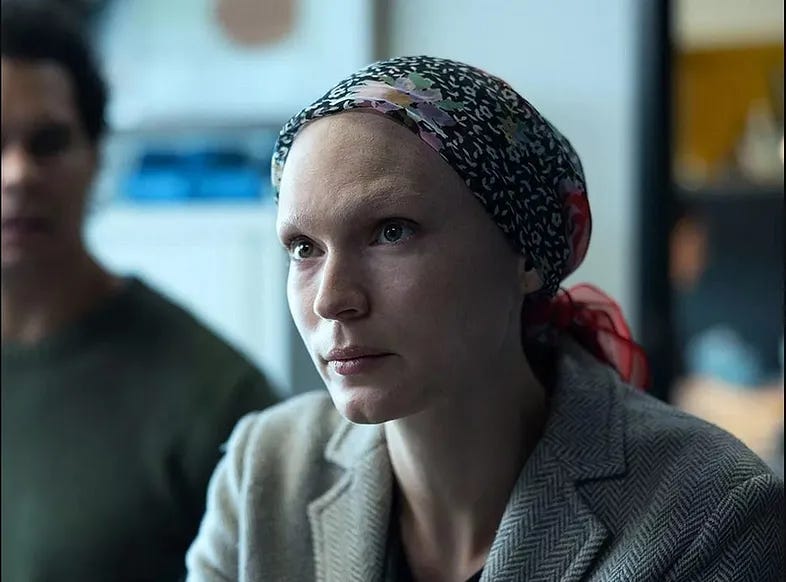
The performances in Apple Cider Vinegar are generally outstanding, with the lead actors standing out in particular.
Kaitlyn Dever delivers a standout performance as Belle Gibson, offering a nuanced and multifaceted portrayal of the character. She presents Belle as intensely driven and ruthlessly ambitious, while also exuding charisma and a keen manipulative charm. With a convincing display of warmth and care — when it serves her — she crafts a character who can twist the truth in an instant to get what she wants.
Beneath Belle’s confident exterior lies a deep fear of rejection and a desperate need for validation. Dever’s performance makes Belle a fascinating and complex figure, leaving viewers genuinely curious about how she became the person she is.
Naturally, much of the character’s inspiration comes from the real-life Belle Gibson, but the series takes creative liberties to adapt the story for television. Strauss does an excellent job of portraying Belle’s intricate personality. By incorporating everyday, relatable moments, the series allows the audience to feel a certain degree of sympathy for Belle — despite the shocking and deeply unethical choices she is willing to make.
Alycia Debnam-Carey also delivers a compelling performance as Milla Blake. While Belle appears to knowingly deceive the world in pursuit of success, Milla’s greatest flaw is self-delusion and naivety. She genuinely believes in her own path to better health through alternative medicine. Yet, like Belle, she thrives on the attention from her followers, the financial rewards, and the ever-expanding career opportunities that come with her public persona. Debnam-Carey brings a sense of vulnerability to the role, making Milla both believable and deeply tragic.
Among the supporting cast, Matthew Nable stands out in his role as Milla’s father. Despite his belief in conventional medicine, he chooses to stand by his daughter and wife as they pursue an alternative path to a cancer-free life. Throughout the series, he conveys a constant sense of sorrow and skepticism, caught in an emotional struggle between his love for his family and his conviction about what he believes is the right course of action.
Similarly, Mark Coles Smith delivers a strong performance as journalist Justin, who investigates Belle. He masterfully balances critical skepticism with the grief, frustration, and love he feels as he watches his cancer-stricken wife fully embrace Belle’s narrative.
One of the first things that struck me about this series is its resemblance to Inventing Anna (2022), where Julia Garner’s Anna Delvey schemes her way into the fashion industry. Belle Gibson shares several traits with Delvey — she is a skilled manipulator, an articulate speaker, and utterly ruthless in her pursuit of success.
When I started the first episode, I initially thought this might be a typical chick flick series — but I was wrong. Apple Cider Vinegar delves much deeper than expected, delivering a complex and gripping story in just six episodes.
Set in the early days of Instagram’s rise, the series highlights how social media can blur the line between reality and fiction — and how some people know exactly how to exploit this. Apple Cider Vinegar examines how influencer culture mixes fake news with health advice from self-proclaimed experts and online personalities, distorting perceptions of reality, beauty standards, and medical treatment. In an era where pharmaceutical scandals make headlines and public health is under strain, it’s easy to see why many are drawn in — and just how dangerous an unchecked flow of misinformation can be.
Apple Cider Vinegar explores several intriguing and timely themes: how social media fosters an addiction to attention and sympathy, and the temptation to exploit this when a tragic story can be turned into followers, money, and fame. Once a lie becomes successful, how far is someone willing to go to keep it alive?
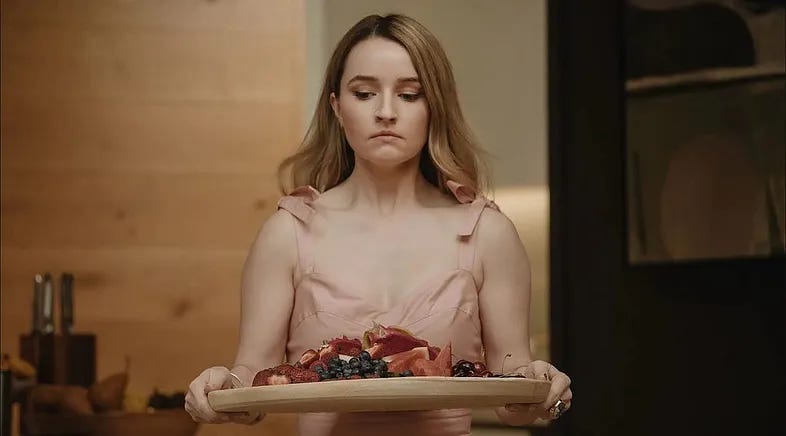
Algorithms feed us role models to compare ourselves to, fostering a constant sense that we could — and should — be better. In this world, the stories we tell and share become commodities, selling the illusion of our own lives and success. With a large enough following, one can earn a life of luxury, and as long as the product sells, the truth becomes irrelevant.
We see this social comparison shape Belle’s relationship with Milla, driving her transformation from admirer to rival as the story unfolds. This underlying feud simmers beneath the surface throughout the series, while the narrative shifts back and forth in time to reveal how and why things ultimately unravel.
The series also explores the importance of source criticism, showcasing how Belle and Milla promote their wellness brands without any scientific backing. As journalists — and many others — begin to question the narrative Belle is selling, the central issue emerges: just how trustworthy are these influencers really?
Belle isn’t satisfied with launching an app on a global scale — she also wants to publish a cookbook to reach an even wider audience and create a lasting, tangible testament to her success. She approaches a renowned publishing house, determined to cement her status as a leading voice in alternative health.
But Belle’s relentless pursuit of success comes at a cost. Her obsession begins to overshadow the most important roles and relationships in her life, including caring for her son and her marriage to Clive (Ashley Zukerman). Her ambition becomes a black hole, threatening to consume everyone who gets too close.
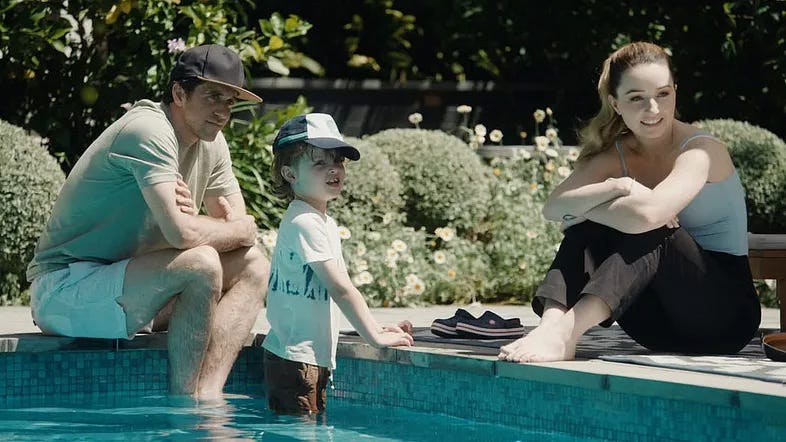
The series does a solid job of telling its story, but a few elements hold it back. One of the biggest challenges is the frequent time jumps, which can be particularly confusing early on. While the structure becomes clearer as the series progresses, the transitions between timelines could have been handled in a more seamless and structured way. More distinct visual cues or a smoother narrative flow would have made the viewing experience less disorienting, especially for audiences unfamiliar with the real-life events.
The series occasionally breaks the fourth wall, with characters speaking directly to the audience. However, this technique feels inconsistent and lacks a clear narrative purpose, making it come across more as a random stylistic choice than a cohesive storytelling device.
On the other hand, the visualization of text messages and comments is far more effective. The series uses this technique to personalize the hate messages Belle receives, offering insight into how such interactions can deeply affect a person. This approach provides a compelling look into Belle’s thought process and helps build an emotional connection to the characters.
All in all, Apple Cider Vinegar delivers an engaging viewing experience and a fascinating look into the real-life drama of Belle Gibson — along with the darker side of the wellness influencer industry. The series strikes a compelling balance between suspense, character study, and social critique, making it both entertaining and thought-provoking.
Are you fascinated by crime stories involving fraud, deception, and manipulation? Do you enjoy series that delve into the psychological mechanics of a scam? Or maybe you just have an inner drama queen who thrives on intrigue? If so, Apple Cider Vinegar is definitely worth watching!




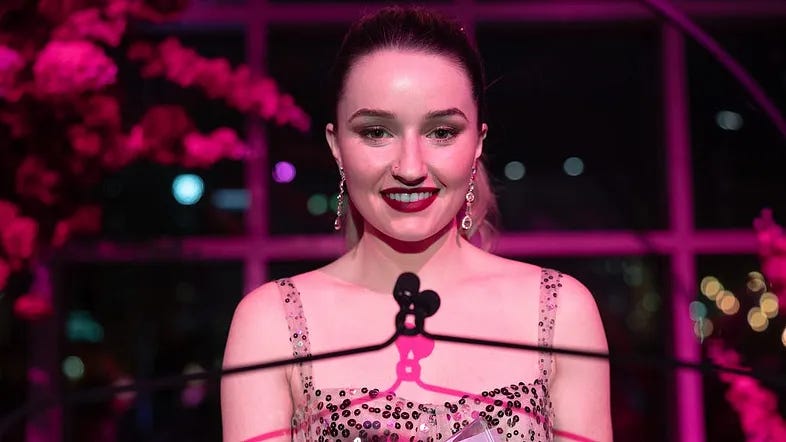

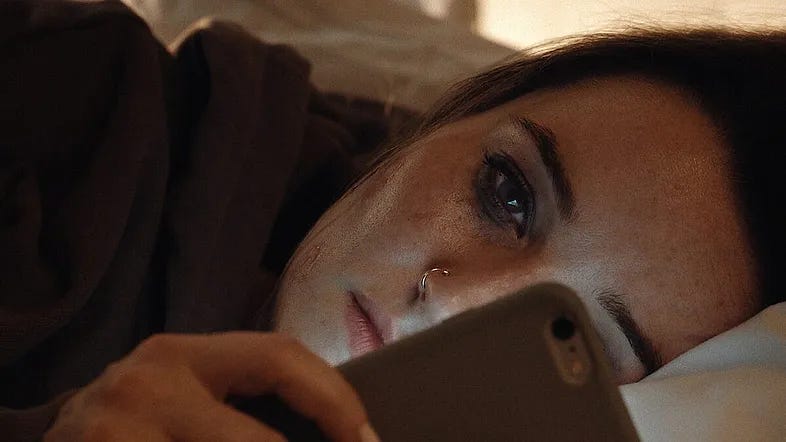

Just finished this series and thought it was one of the best things Netflix has put out in a long time. Influencers did a lot of damage in the 2010’s, so much more room for ethical governance on social platforms even today.